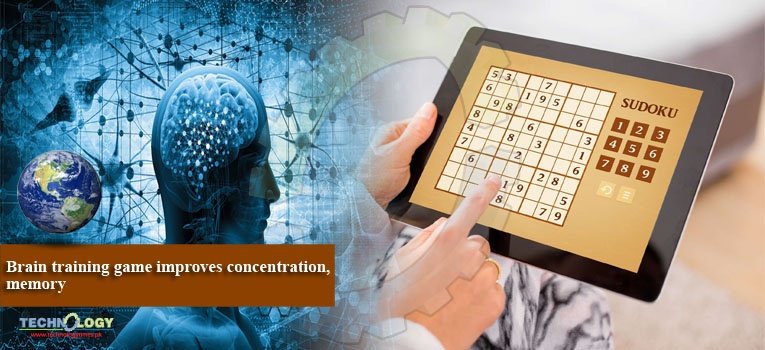Cambridge researchers have developed a new brain training game, which they say improves users’ concentration and could provide an ‘antidote’ to the daily distractions that we face in a busy world.

With the emergence of new technologies requiring rapid responses to emails and texts and working on multiple projects simultaneously, young people are having more problems with sustaining attention.
This difficulty in focusing attention and concentrating is made worse by stress from a global environment that never sleeps and also frequent travel leading to jet lag and poor quality sleep.
“We have all experienced coming home from work feeling that we’ve been busy all day, but unsure what we actually did,” said Professor Barbara Sahakian from the University of Cambridge in the UK.
“Most of us spend our time answering emails, looking at text messages, searching social media, trying to multi-task. But instead of getting a lot done, we sometimes struggle to complete even a single task and fail to achieve our goal for the day,” Sahakian said.
In recent years, as smartphones have become ubiquitous, there has been a growth in the number of so-called ‘brain training’ apps that claim to improve cognitive skills such as memory, numerical skills and concentration.
Now, a team from Cambridge has developed and tested ‘Decoder’, a new game aimed at helping users improve their attention and concentration.
The researchers demonstrated that playing Decoder on an iPad for eight hours over one month improves attention and concentration. This form of attention activates a frontal-parietal network in the brain.
They divided 75 healthy young adults into three groups: one group received Decoder, one control group played the Bingo game for the same amount of time and a second control group received no game.
Participants in the first two groups were invited to attend eight one-hour sessions over the course of a month during which they played either Decoder or Bingo under supervision.
All 75 participants were tested at the start of the trial and then after four weeks using the CANTAB Rapid Visual Information Processing test (RVP).
CANTAB RVP has been demonstrated in previously published studies to be a highly sensitive test of attention, researchers said.
During the test, participants are asked to detect sequences of digits. A white box appears in the middle of screen, of which digits from 2 to 9 appear in a pseudo-random order, at a rate of 100 digits per minute.
Participants are instructed to press a button every time they detect a sequence. The duration of the test is about five minutes.
Results from the study showed a significant difference in attention as measured by the RVP.